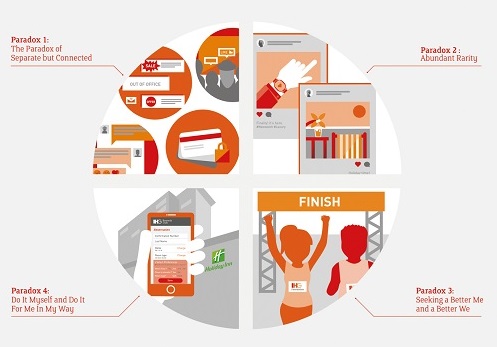
Management & Letting Rights: The big “What if?”
The high cost of switching from resident managers in MLR schemes: ARAMA calls for facts not emotions
Management & Letting Rights (MLR) is in the spotlight and under the scrutiny of various bodies, such as the Unit Owners Association of Queensland and the Strata Community Association of Queensland, both calling on the government to slash the length of management contracts (read about the threat HERE).
Criticism of the onsite/resident manager model begs the question, what happens if a scheme replaces it with outsourced facilities management?
This month Resort News examines this question in its special report “The high cost of switching from resident managers.”
Subscribe to Resort News here.
MLR is well positioned as a soundly structured business model that allows the business owner (oftentimes a resident lot owner) to purchase the right to provide the caretaking and letting services within a community title (also known as a strata title) scheme. The business model has shown to be an efficient means of managing strata buildings offering mutually beneficial outcomes to all stakeholders and it exists under varying legislation.
More to the point, MLR currently generates $55 billion for the Australian economy annually and that number is on the increase as more Australians embrace high-density living options in both the long-stay residential and short-stay tourism accommodation sectors.
Keeping a steady hand at the helm, the industry body for management rights, the Australian Resident Accommodation Managers Association (ARAMA) plays a critical role in promoting and protecting the concept of owner-operated MLR as the most effective method of serving the interests of unit owners, bodies corporate (or owners corporation), tourists and tenants, alongside optimising the industry’s growth and reform.
But the management model is not without its critics, who also suggest outsourcing caretaking and building management tasks to a facilities management company would be more cost-effective.
Would it be more cost-effective?
The answer is an emphatic NO from ARAMA CEO Trevor Rawnsley and in his opinion, outsourcing would be much more expensive. He said owners would very quickly discover that management rights is the cheapest and most effective mode for looking after the interests of a building or complex.
He added that if facility management took over from onsite managers in the caretaking of a building, unit owners would quickly find out that while the grass might look greener on the other side, gardening contractors can charge “lawyer’s rates” and often they are in short supply, so they may find the grass takes longer and costs more to cut.
Furthermore, Mr Rawnsley points out that the opposite is true. He said to look at the facts, there are time and motion experts who have produced figures showing that on 87 percent of occasions onsite/resident managers are actually underpaid for the work that they provide compared to what an outside facility manager would charge.
“We put this down to the long-term nature of the resident managers’ contracts – the caretaking service agreement. Many managers are quite happy to trade off a remuneration increase for increases in term,” he said.
Another industry expert who spoke to Resort News on the condition of anonymity said bodies corporate that decided to outsource caretaking work at their buildings often did so not with consideration for the price but more so for “control.”
The expert compiles both types of management contracts for schemes on a regular basis and said the difficulty in managing a scheme using separately arranged individual contractors was that there was “a large percentage of administrative and supervisory work.”
“That then becomes the responsibility of the committee or requires the engagement of a supervisory contractor to allow for those contracts to be fulfilled,” the expert said.
Lawyer John Mahoney agreed there can be problems when a scheme changes over to an outsource caretaking service model.
Mr Mahoney, who has spent decades working in the management rights industry, told Resort News he’s seen bodies corporate struggle.
He said: “You need pool cleaners, unit cleaners, you need gardeners, handymen, and so on. There are so many people involved to do the work of one resident manager.
“I’m hearing that many bodies corporate struggle when trying to get everything organised. The resident manager is a one-stop shop. If things need to be done immediately there’s usually no waiting time, it gets done straight away.”
Despite decades of positive outcomes from the MLR business model and the benefits that come from having long-term management rights agreements, this year calls have surged pushing for reform and for the term of management rights agreements to be reduced from 25 to three years.
It’s a move that has been described by ARAMA as threatening thousands of Queensland-based ‘Mum and Dad’ businesses.

Providing an update on the industry’s fight against a reduction in MLR term, Mr Rawnsley told AccomNews ARAMA and other key stakeholders have since last April been heavily involved as members of a government consultation group working under a Community Title Legislation Working Group (CTLWG).
The working group has now submitted its findings to the Queensland Government as part of a review of the Body Corporate Management Act Queensland.
Mr Rawnsley told us the purpose of the CTLWG is for the Queensland Government to consult with industry and stakeholders.
ARAMA, he said, is one of those stakeholders and the group was examining all of the major issues that deal with the body corporate community management act in Queensland management.
Mr Rawnsley said there are certain submissions that ARAMA has put forward that the government has asked to be kept confidential at this stage.
But it is understood these range across a whole raft of concerns, focusing on a number of long-standing contentious issues including the term for management rights agreements, the impact Airbnb is having on the short-term rental landscape, parking, pets, parties, and passive smoking.
“Licensing of body corporate managers is another and insurance in North Queensland is another, so it’s a full examination,” Mr Rawnsley said.
“Naturally, we’re trying to balance everything with facts, rather than emotion.
“All the input from various stakeholders and various points of view has been listened to, invited in and submitted, and the government is now considering its position.”
Mr Rawnsley said he expected the outcomes of the review to be made available next year.
“When it comes to management rights, we were just asking the government to be careful not to overreact to those who are trying to make a commercial benefit out of the demise of term.
“And ARAMA is doing what it’s meant to be doing, and that is representing the industry to government so that it doesn’t make any bad governance decisions.”

AccomNews is not affiliated with any government agency, body or political party. We are an independently owned, family-operated magazine.







